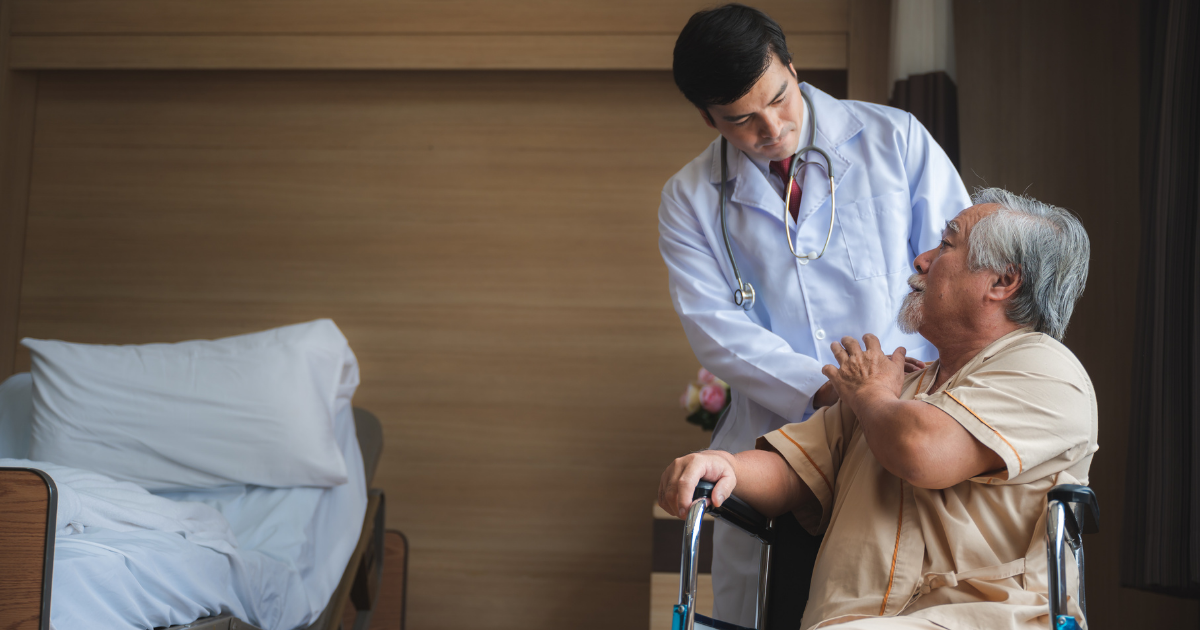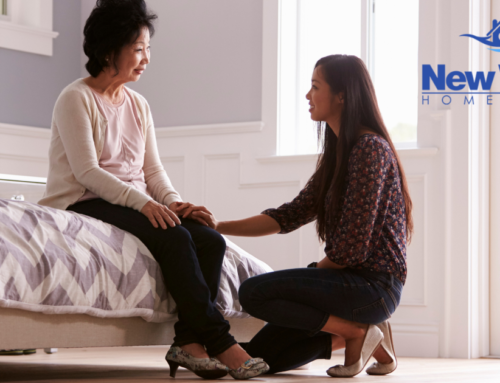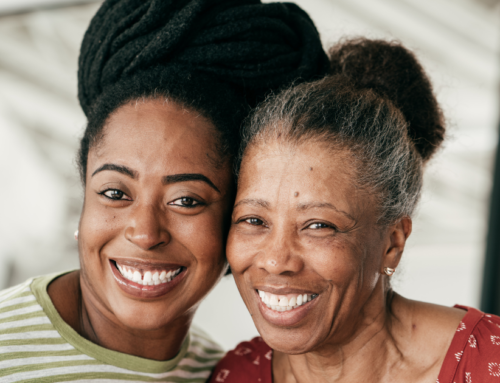Each year, millions of older Americans are admitted to hospitals for reasons that include injurious falls, strokes, and adverse cardiac events. Once that hospital stay is over, those seniors – and their families – are faced with the difficult task of recovering at home. As an informal caregiver, keeping your loved one safe and comfortable during the recovery process can be stressful and frustrating. Here are senior home care tips to avoid hospital readmission once they’ve gone home.
Why Seniors Go into the Hospital
More than 800,000 seniors in the U.S. get hospitalized after falling each year. Many endure extended hospital stays because of injuries such as hip fractures, broken bones, and head trauma. Sadly, some are forced to move into nursing homes permanently as a result.
According to AARP, these are other common reasons for hospital admissions in the elderly:
- Cardiac arrhythmias
- Congestive heart failure
- Chronic obstructive pulmonary disease (COPD)
- Coronary atherosclerosis
- Diabetes
- Infection
- Medication problems
- Pneumonia
- Stroke
5 Transitional Care Tips for Informal Caregivers
Whether it’s recovering after an operation, illness, or a hospital stay, transitioning back home can be an emotionally trying time for patients and their caregivers.
Here are five proven ways to ensure that your recovering loved one gets the transitional care they deserve:
Be supportive
Adjustments that accompany a recovery can be notably difficult for stubborn seniors. As a caregiver, go in with an open mind, be willing to communicate and listen patiently, and remain as empathetic as possible. Although your loved one might be angry, frustrated, depressed, or anxious, don’t allow those negative emotions to keep you from giving them the love, attention, and support they need.
Form a caregiving team
Although the period after a hospital stay can feel like a whirlwind, allow plenty of time to consult with your senior’s doctors, surgeons, and other healthcare specialists. Numerous tasks will need to be managed, like housekeeping, meals, rehab appointments, medication reminders, etc. Develop a schedule based on those needs, and don’t be afraid to involve other trusted family members and friends in the process.
Modify the home
After a hospital stay, your loved one may have difficulty getting around, or they could be experiencing pain, medication side effects, or noticeable changes to their hearing or eyesight. At that point, falling becomes a real possibility. Create a safer home environment by moving furniture out of walking paths, adding more lighting, and installing grab bars in the bathroom.
If they will be using a wheelchair or walker for a while, it might be best to install wheelchair ramps at the front and back entrances. Also, ensure that the pantry and fridge are well stocked and that all your loved one’s health needs are on hand, like hearing aids, vision aids, medications, etc.
Help where you can
For at least the first few weeks, you may be asked to help coordinate tasks like home health care visits, doctor’s appointments, therapy sessions, and medication refills. Based on your loved one’s ability to perform activities of daily living (ADLs), you might need to assist them with bathing, housekeeping, laundry, food shopping, cooking meals, and other responsibilities. As an unpaid caregiver, it’s also imperative that you offer them constant encouragement and emotional support.
Call in the calvary
Although it’s very gratifying, serving as a primary caregiver during a loved one’s recovery can also be physically and emotionally exhausting. Avoid caregiver burnout by bringing on an extra pair of hands from sources like:
- Family members, neighbors, and friends
- Community volunteers that work with the aging
- A meal delivery service
- An online pharmacy
- A professional in-home caregiver
Quality In-Home Transitional Care for Families in Pasadena, CA
Meeting the transitional care needs of an older loved one after a hospital stay can be time-consuming and frustrating. At New Wave Home Care, we’ve been providing in-home senior care for families in Pasadena, California for 12+ years now. As a licensed home care provider, we support clients and their families with personalized in-home solutions like personal care, transitional care, respite care, dementia and Alzheimer’s care, and hospice support.
When you choose New Wave Home Care in Pasadena, you can rest assured that your loved one is getting the specialized care they need from a trusted, friendly caregiver. To learn more now or schedule a FREE in-home assessment for a senior in the greater Los Angeles area, please visit us at www.newwavehomecare.com.







